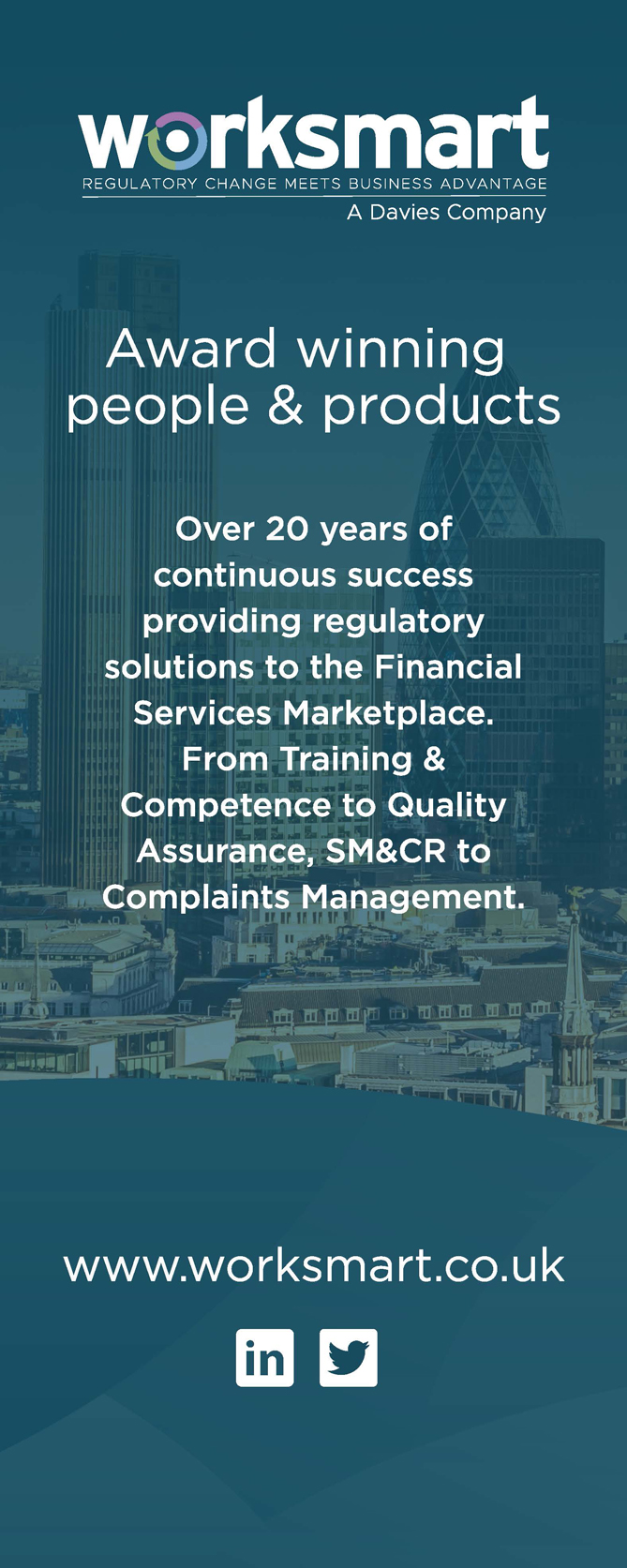In my last article (October’s edition), I talked about the value of firms revisiting and updating their existing people related regulatory processes, e.g. SM&CR and Training & Competence, to enable them to evidence that they are complying with Consumer Duty (CD). In my view it still makes sense that firms focus on these things. However, in this article I want to look at Consumer Duty from another perspective, namely that of the individual.
The reason I’m keen to talk about this from an individual’s perspective is because, to date, the focus has been on firms and their policies, practices and processes, e.g. product design, product governance, sales processes, distribution strategies, etc. Once live, however, responsibility will come down to individuals, most specifically the senior managers, certified individuals and particularly the NED who has been identified as being the ‘Consumer Duty Champion’. Through observing many regulatory change programmes over the years, it’s noticeable how much time and resource within projects are focused on the product/process changes, with less time spent on the impact to individuals and the way in which they deliver against the requirements of their roles. However, in a post SM&CR world, individuals will need to consider Consumer Duty very carefully from a personal perspective. Why? Well because those individuals noted above are subject to annual F & P assessments as a requirement to continue within their role, and on that basis, individuals need to ensure (demand even) that they have the right input, education and tools to ensure they can personally deliver against their Consumer Duty requirements. In my view this represents a personal risk for key individuals, one that I suspect is not ‘front of mind’ for most individuals when preparing for the new rules to come into force.
Some may say that the industry has (potentially unwittingly) used this complexity to its advantage in the past, but this is exactly what the FCA want to see an end to.
So, whilst no doubt firms’ re-engineering of their consumer centric processes (where necessary) will be welcome, so much of what the regulator is expecting comes back to being more focused on customer interactions, be it one to one, via websites or written communications. As an example, even if a firm’s sales process is modified to provide information in a much more user-friendly way, in tune with what research tells us about the best way for consumers to consume complex information, it’s the one-to-one contact between potential customer and employee in the advisory space that will deliver a major part of the experience expected by the FCA. And continuing the example of a firm’s sales process, how much time, awareness and competence will employees have to understand the consumer’s preferences and underlying beliefs and support them to make the decision that best balances the two?
For those who have been reading up on Behavioural Economics (BE) you will have noticed I have just slipped in two key BE terms, i.e. preferences and beliefs. This is deliberate because the FCA sees the understanding of, and effective use of Behavioural Economics as one of the foundation stones to delivering the Consumer Principle, i.e. “good outcomes for retail consumers”. BE highlights the fact that financial products are difficult for many consumers to fully understand. Of course, simple products like travel insurance are relatively straightforward in that these policies are sufficiently transparent to enable consumers to assess the pros and cons of each product rationally and make decisions that are in their best interest. However, the same can’t be said for more complex products such as mortgages, pensions and investments. So, when it comes to the more complex products, BE has identified that consumers default to more intuitive styles of analysis and decision making. They do this simply because the inherent complexity of the product combined with the way it is presented, sold and supported post sale, is just too difficult for many to assess logically. And where intuition comes into the picture, so do biases, shortcuts and the risk of consumers making poor decisions. Some may say that the industry has (potentially unwittingly) used this complexity to its advantage in the past, but this is exactly what the FCA want to see an end to.
Talking with both our clients and the Trade Bodies that support the sectors, we know that many firms are trying to use the principles behind BE to reengineer their processes to limit the opportunity for consumers to rely on their in-built preferences and beliefs that might drive poor decision making. Common examples I hear are things like building friction, e.g. delays, warnings etc., into the sales process and redesigning financial promotions to greater highlight the limitations and risks inherent in a product as much as the benefits and potential rewards. That is all laudable, however, I come back to my earlier point that a major responsibility falls on individuals to help consumers steer away from the potential risks in their own decision making.
So how can individuals do this? Well firstly, greater opportunity needs to be built into key processes, for example, around the following areas:
- Product Review: For product design teams to engage more directly with customers when analysing whether the product is being purchased as expected and whether it is performing as planned.
- Product Purchase: For advisory teams to discuss in more detail with potential customers at different points in the sales process around their preferences, beliefs., their likely approach to decision making and the underlying reasoning around that
- Product Usage: For post sales service teams to have structured processes to ensure that they are considering how customers are using the products/processes post sale and whether they are using the products as intended and whether they still remain suitable and fit for purpose.
Secondly, individuals need to be given the training and support to help guide consumers to make decisions in their best interests. Individuals need basic BE awareness training then, critically, for them to make sense of this, have the practical implications of BE embedded into their role-based Conduct Rules training. (If ever there was a case for role-based Conduct Rules training – BE is it!) Role-based Conduct Rules training can provide real life examples and scenarios for individuals to work through that will test their understanding of BE and their ability to help customers to limit the potential self-harm caused by decisions made using their intuition and in-built biases that even they don’t recognise exist. Additionally, firms’ processes should be enhanced by including operational guides and checklists, e.g. key questions to ask, variations of FAQs etc, to help in this complex area. In summary, I see role-based Conduct Rules training as pivotal to helping firms deliver good consumer outcomes in those one-to-one interactions, backed up by the science that BE brings us.
Thirdly, in addition to role-based Conduct Rules training, supporting processes such as performance management, Training and Competence and Certification should be updated to include BE as a fundamental principle to delivering good outcomes.
Lastly, firms should not stop there, reward and recognition systems should be amended to include customer feedback, (if not already in place) e.g. results of the texts that many firms send out post interaction, i.e. ‘how did XXX do today? If this type of instant feedback is hooked into appraisal processes and even made part of the reward / bonus process, then it would be interesting to see what potential changes in behaviour that it might drive within firms. And on that point, why not build BE related employee behaviours into award schemes sponsored by the ‘Consumer Duty Champion’?
So, in summary, to deliver better consumer outcomes, firms need to embrace the changes needed at an employee level not just content themselves to reengineer systems and processes. And when considering the employee, focus on providing them with both the awareness of this complex area to help employees look out for and be sensitive to the distortions that behavioural science can make to consumers’ decision-making processes. Once done, firms should adapt their supporting people processes to include BE and, importantly, make it part of firms’ reward and recognition processes for staff.
If firms continue to focus on reengineering systems and processes alone, I fear they will ‘come up short’ against the FCA’s expectations under Consumer Duty. The FCA understand from their own research the distortion that can happen through the customer engagement processes when biases and shortcuts come into play from a consumer perspective. I appreciate that BE is difficult to grasp, but that should not be the reason for firms and individuals to shy away from this area. Taking the research and learning that the FCA have undertaken and published, should allow firms and individuals to develop their approach in this area. Challenging it will surely be, but for firms that embrace what BE tells us and weave it into people and process change, and subsequent management, will surely better implement what CD demands of us. I wonder how many firms are on ‘the journey?’






